#dubai lawyer
Text
Mediation and Conciliation in Civil and Commercial Disputes: A New Horizon
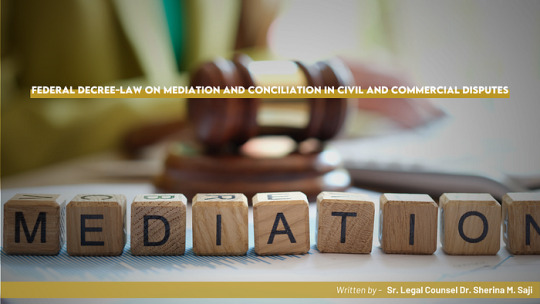
With the launch of the Mediation Rules by the Dubai International Arbitration Centre effective from 01 October 2023, the UAE has introduced a significant piece of legislation at the federal level, consolidating Mediation and Conciliation specifically in Civil and Commercial Disputes viz. Federal Decree Law №40 of 2023 (the “Decree-Law”) which will come into effect on 29 December 2023, thereby repealing Federal Law №6 of 2021 on Mediation in Civil and Commercial Disputes which regulated both the judicial and non-judicial Mediation; and Federal Law №17 of 2016, as amended by Federal Law №5 of 2021, which governs Conciliation and regulates the establishment of court-annexed Conciliation and Mediation centres for civil and commercial disputes; ushering in a new era for alternative dispute resolution (“ADR”) in the UAE.
By nature, the concept of Mediation and Conciliation is profoundly embedded in Arabic culture and Sharia law, as such, the Decree-Law is a welcome step equally for parties and lawyers alike to progress ADR in the UAE. This move aligns with the UAE’s commitment to signing the Singapore Convention on Mediation, announced in March 2022.
Overview
At the outset, Mediation may be conducted in all civil and commercial disputes capable of settlement without conflicting with the existing laws or the public order and morals prevailing in the UAE, without prejudice to the provisions of the local laws that regulate Mediation. This is in accordance with Article 8 of the Decree-Law, while Article 27 of the Decree-Law states about the exclusive competency of Mediation and Conciliation Centre (the “Centre”) to conciliate civil and commercial disputes (i) whose value does not exceed five million (5,000,000) dirhams; and (ii) between spouses or relatives up to the fourth degree, regardless of their value. The adversaries may agree to resort to the Centre for Conciliation of civil and commercial disputes whose value exceeds five million (5,000,000) dirhams, whether before a case is filed or while it is being heard.
That said, as outlined in Article 28 of the Decree-Law, certain disputes do not fall within the jurisdiction of the Centre viz. (i) urgent and interim orders and cases; (ii) cases to which the government is a party, (iii) rental cases heard before special rental dispute committees, (iv) labor cases, personal status cases; and (vi) any other cases decided to be heard before a Centre, committee or other entity of similar jurisdiction.
Establishment of Centres
The Federal Judicial Council (the “Council”) or the chairman of the local judicial authority may establish one or more Centre(s) for Mediation and Conciliation within the territorial jurisdiction of the first-instance courts; and shall issue pertinent regulations to govern the work and operations of the Centre(s). There is also scope for establishing special Centre(s) for Mediation and branches of foreign Mediation Centre(s); with court or the local judicial authority having supervisory authority on its working and formulating the general policies.
Remote Mediation and Conciliation Platform
Article 4 of the Decree-Law empowers the Mediators and Conciliators to conduct Mediation and Conciliation meetings through electronic means and remote communication, subject to regulations and procedures issued by the Minister of Justice, based on the approval of the Council or the chairman of the local judicial authority.
Mediators and Conciliators Accreditation Processes
The Federal Judicial Inspection Department or the local judicial authority shall maintain a roster for registering Mediators from amongst those registered in the experts’ schedule at the Ministry of Justice or with the local judicial authorities, and the expert Mediators named by a decision of the Council or the chairman of the local judicial authority. Normally they shall be selected from amongst retired members of the judiciary, lawyers registered in the schedules of practicing and non-practicing lawyers. Qualification includes practice of the profession for a period of not less than five (5) years prior to their registration in the non-practicing lawyers’ schedule, and other highly qualified experts and international experts in the legal and business fields, who are known for their expertise, integrity and impartiality. Furthermore, Article 15 of the Decree-Law allows appointment of any natural or legal person, known as Private Mediator, entrusted by the Parties with the task of Mediation to amicably resolve the dispute between them, and not registered on the Mediators’ Lists.
The appointment of Conciliators follows a procedure similar to employment. The Federal Judiciary or the president of the local judicial authority will establish the qualification for the post of a Conciliator. The Conciliators must take a legal oath before assuming their duties, and shall be subject to a specific compensation scheme.
Confidentiality and Non-disclosure
The documents and information submitted or agreements or concessions made by the parties to the disputes submitted for Mediation or Conciliation (the “Parties”), and Mediation and Conciliation procedures as a whole are treated with utmost confidentiality, as envisaged in Article 5 of the Decree-Law; except with the consent of the Parties, or as required by law. Exception further extents to document(s) prepared by the Mediator or the Conciliator and signed by the Parties, including the Settlement reached to resolve the dispute, in whole or in part, between them; and the documents and instruments necessary for its enforcement. Failure by the Mediator or Conciliator to adhere to the confidentiality and non-disclosure obligations stipulated herein, attracts disciplinary actions according to Article 40 of the Decree-Law, without prejudice to the provisions of civil and criminal liability.
Prohibitions on the Mediator and Conciliator
Article 6 of the Decree-Law prohibits the Mediator and Conciliator from acting as an arbitrator or expert in the dispute, or accepting to be an attorney in a dispute against any of the Parties regarding the subject matter of the dispute subject to Mediation or Conciliation, or anything arising from it, even after the completion of the Mediation or Conciliation procedures, unless the Parties agree otherwise. Prohibitions further extents to giving testimony against any of the Parties to the dispute regarding the subject matter of the dispute subject to Mediation or Conciliation, or anything arising therefrom, even after the completion of the Mediation or Conciliation procedures, unless authorized by the concerned party or the Parties agree otherwise, except in cases where the testimony is related to a crime; and in case of acting as a Mediator or Conciliator in a dispute where one of the Parties is a spouse or a relative up to the fourth degree by blood or marriage.
Parallel Mediation and Conciliation Structures
While the previous separate federal laws on Mediation and Conciliation laws are now consolidated, these two parallel structures continue to co-exist under the Decree-Law. Concerning Conciliation, under the court-annexed system, mandatory Conciliation is a prerequisite for specific types of disputes prior to litigation proceedings, and with regards to Mediation, voluntary process that can be initiated either through contractual agreement or by court referral, subject to the Parties mutual consent applies. Here, the chief difference is with the role of the “Mediator” opted by the Parties i.e., while in the Mediation process, the Mediator acts as a facilitator aiding the Parties to arrive at an agreement using the Mediation techniques; however, in the Conciliation process, the Mediator only suggests possible paths to the Parties in order to resolve the dispute. Precisely, both the structures share a common goal, which is amicable resolution of the disputes, whether before, or at the stage of the legal proceedings.
Consensual Mediation
In enforcing the agreement between the Parties made either before or after the occurrence of dispute, with the aim of resorting to Mediation for the Settlement of the dispute (“Mediation Agreement”), the Parties may directly resort to the Center to settle the dispute between them, before filing a lawsuit, as per Article 11 of the Decree-Law. This is Consensual Mediation, the initiation of which interrupts legal and judicial deadlines and only resume upon the completion of the Mediation, unless it is concluded by the Parties signing a Settlement Agreement. The procedures for Consensual Mediation are set out in Article 12 of the Decree-Law. In pursuance of Article 13 of the Decree-Law, the court before which a case is filed regarding a dispute brought before a Mediator in enforcing the Medication Agreement, shall decide suspension of the case until the completion of the Mediation procedures, if the defendant urges therefor before making any request or submission on the merits, unless the court finds that the Mediation Agreement is void or impossible to be enforced. The filing the case shall not however, preclude the initiation or continuation of Consensual Mediation procedures.
Court-Referred Mediation
Court-Referred Mediation occurs by virtue of a referral decision made by the subject-matter court competent to hear the lawsuit (“Competent Court”), at any stage of the case, whether proposed by the court with the Parties’ consent or upon their request. Article 14 (3) stipulates that the referral decisions issued by the Competent Court cannot be appealed by any ordinary or extraordinary means of appeal. Mediation shall end as per Article 21 of the Decree-Law if the Parties (i) sign a Settlement Agreement; (ii) agree to end the Mediation before reaching a Settlement Agreement for any reason; (iii) if one of the Parties informs to the Mediator or the Centre of their wish to participate in or continue Mediation; (iv) if the Mediator notifies the Centre, in writing or electronically, that the Mediation: (a) is futile and that there is no possibility of reaching a resolution to the dispute; (b) has been ended due to the absence of any of the Parties from two consecutive Mediation sessions without excuse; and (v) if the Mediation period expires without being renewed.
In all the above cases, the Mediator shall, upon the end of Mediation, deliver to each party any memoranda and documents they presented, and they may not retain them or copies thereof, and shall send a written or electronic report to the Centre on the result of the Mediation within three (3) working days from the date of ending the Mediation for any reason. The Centre shall notify the Parties and the Competent Court, within three (3) days, of the report and the result of the Mediation.
End of Mediation
Mediation if concluded successfully can end by signing the Settlement Agreement. The ratification process of the Settlement Agreement follows three tiers. i.e., from the Mediator to the Centre and finally to the Court. The Mediator shall submit a report to the Centre along with the Settlement Agreement, which the Centre shall send it to the Court within 3 working days. As a final step, the Court shall ratify the Settlement Agreement and issue a decision to end the dispute, wholly or partially, at a session to be scheduled within seven (7) working days from the date of its receipt of the Settlement Agreement. After its ratification, the agreement shall become a writ of execution and an exequatur shall be affixed thereto upon the request of all Parties or one of them, in light of the terms of the agreement submitted to it, and shall be executed according to the procedures stipulated in the Federal Civil Procedure Law.
That said, the aggrieved party has the rights to object or challenge ratification of the Settlement Agreement, by filing an annulment case before the competent Court. The party seeking annulment shall prove one of the reasons viz. (i) lack of legal capacity of one of the Parties to the Settlement Agreement or diminished capacity at the time of its conclusion, (ii) no Settlement Agreement or if the agreement was void or voidable, or if it was made after the expiry of the Mediation period; or (iii) if one of the Parties was unable to present their defence due to invalid service of process or notification of the Mediation procedures or due to them not having been aware thereof for any other reason beyond their control. Pursuant to Article 24 (2) of the Decree-Law, the judgment issued by the court in the annulment case shall be final and can only be appealed through cassation.
Settlement before the Conciliator
If a settlement is reached between the Parties before the Conciliator, either in whole or in part, this shall be recorded in a minutes signed by the Parties and the Conciliator. These minutes shall be ratified by the Supervising Judge, have the force of a writ of execution and the same binding force of court judgments, and are not subject to appeal by any means of appeal. Upon ratification, the minutes shall be affixed with an exequatur upon the request of all or any of the Parties, free of charge, and shall be executed in accordance with the procedures stipulated in the Federal Civil Procedure Law.
Conclusion
The enactment of the Decree-Law marks a pivotal moment for Mediation and Conciliation in the UAE, offering a unified platform for resolving disputes not just in property and construction disputes but in other Civil and Commercial disputes as well.
Recommendation
Whether you are navigating construction disputes, real estate intricacies, or commercial contracts, having a reliable Dubai Lawyer is crucial in providing comprehensive services across various legal domains. Dubai Lawyers and Dubai Law Firms play a pivotal role in addressing a spectrum of legal needs. Considering the legal landscape in Dubai, individuals and businesses can benefit from the expertise of seasoned Dubai Lawyers.
Our record of representing clients in Mediations and ADR procedures throughout the UAE speaks volume. Thus, we recommend for a comprehensive understanding and implementation of the new legislation, consider consulting the seasoned lawyers at Al Dhaheri International Advocates & Legal Consultants, renowned for their expertise in mediation and alternative dispute resolution throughout the UAE.
Written by — Dr. Sherina M. Saji
#Law Firm#Dubai Lawyer#Lawyers in Dubai#Dubai Lawyers#Best Lawyers in Dubai#Best Lawyers in UAE#Best Advocates in Dubai#Best Lawyers in Sharjah#Dubai Law Firms#Dubai Law Firm#RERA Dubai
2 notes
·
View notes
Text
Global Solutions, Local Expertise: Al Reyami Advocates and Muhyealdeen International Legal Consultants
Global Solutions, Local Expertise: Al Reyami Advocates and Muhyealdeen International Legal Consultants
In the bustling cosmopolitan landscape of Dubai, where businesses converge from around the globe seeking opportunities in a thriving economy, the role of skilled legal practitioners cannot be overstated. Amidst the vibrant business environment of Dubai, Al Reyami Advocates and Muhyealdeen International Legal Consultants emerge as pillars of legal expertise, offering a unique blend of global solutions and local expertise to clients navigating the intricate legal terrain of the city.
Navigating Dubai's Legal Maze
Dubai's legal framework is a complex tapestry woven from both local regulations and international standards, reflecting the city's position as a global business hub. For businesses and individuals operating in Dubai, understanding and complying with these legal intricacies is paramount to success and sustainability. This is where the expertise of seasoned lawyers in Dubai, such as those at Al Reyami Advocates and Muhyealdeen International Legal Consultants, becomes indispensable.
Expert Guidance from Dubai's Legal Experts
With a deep-rooted understanding of Dubai's legal landscape, our team of lawyers possesses the knowledge and experience necessary to provide clients with expert guidance on a wide range of legal matters. From corporate law and commercial transactions to real estate and dispute resolution, our lawyers in Dubai offer comprehensive legal services tailored to meet the diverse needs of our clients. Whether representing multinational corporations, small businesses, or individuals, our focus remains unwavering: to provide strategic counsel and effective solutions that drive success.
Global Insight, Local Application
While our expertise is firmly rooted in Dubai's legal system, we recognize the importance of a global perspective in today's interconnected world. Through our extensive network of affiliations and partnerships with leading law firms and practitioners worldwide, we offer clients access to a wealth of global resources and insights. This global reach allows us to provide clients with innovative solutions that transcend borders while remaining grounded in the local context of Dubai. Our lawyers leverage this global insight to offer clients the strategic advantage they need to navigate complex legal challenges in an increasingly globalized marketplace.
Tailored Solutions for Every Client
At Al Reyami Advocates and Muhyealdeen International Legal Consultants, we understand that every client is unique, with their own set of objectives, challenges, and priorities. That's why we take a personalized approach to every case, working closely with clients to understand their needs and develop tailored legal solutions that align with their goals. Our lawyers in Dubai are committed to delivering results-oriented legal services that address the specific needs of each client, ensuring that they receive the highest level of representation and support.
Excellence in Legal Practice
Excellence is not just a goal at Al Reyami Advocates and Muhyealdeen International Legal Consultants; it is a standard that permeates every aspect of our legal practice. From the quality of our legal services to the professionalism of our lawyers, we uphold the highest standards of excellence, integrity, and ethical conduct. Our dedication to excellence has earned us the trust and confidence of clients across Dubai and beyond, establishing us as one of the leading legal firms in the region.
In conclusion, Al Reyami Advocates and Muhyealdeen International Legal Consultants epitomize the concept of global solutions with local expertise in Dubai. With our deep understanding of Dubai's legal landscape, coupled with our global insight and commitment to excellence, we are well-equipped to provide clients with the highest level of legal representation and guidance. Whether navigating complex legal challenges or seizing new business opportunities, clients can trust our team of experienced lawyers in Dubai to provide the strategic counsel and effective solutions they need to achieve their objectives and protect their interests in today's dynamic business environment.
#lawyers in dubai#advocates in dubai#dubai lawyer#dubai advocate#Emirati lawyer#difc lawyer#arbitration lawyer#real estate lawyer#criminal defense lawyer#property lawyer
0 notes
Text
Understanding the Role of Lawyers in Dubai
Dubai, the gleaming gem of the United Arab Emirates, stands as a beacon of opportunity and prosperity in the Middle East. Its towering skyscrapers, bustling business districts, and multicultural ambiance attract individuals and businesses from around the globe. However, with such dynamism comes the need for legal expertise to navigate the complex legal landscape of this vibrant city.
Lawyers in Dubai play a crucial role in facilitating transactions, resolving disputes, and ensuring compliance with the law. Whether you're a multinational corporation, a budding entrepreneur, or an individual seeking legal advice, understanding the role of lawyers in Dubai is essential.
Legal Framework
Dubai operates under a civil law system, heavily influenced by Islamic law (Sharia). The legal framework is codified, with laws enacted by the government and enforced by the judiciary. Additionally, Dubai has established specialized free zones, each with its own regulatory framework tailored to attract specific industries such as technology, finance, and logistics.
Services Offered by Lawyers
Lawyers in Dubai offer a wide range of services to meet the diverse needs of clients:
Corporate Law: Dubai's burgeoning economy attracts businesses from various sectors, requiring legal assistance in company formation, corporate governance, mergers and acquisitions, and regulatory compliance.
Real Estate Law: With its booming property market, real estate transactions in Dubai demand legal expertise in property purchase, leasing agreements, construction contracts, and property disputes.
Commercial Law: Lawyers assist businesses in drafting and negotiating commercial contracts, including sales agreements, distribution contracts, and franchise agreements.
Litigation and Dispute Resolution: Inevitably, disputes arise in commercial and civil matters. Lawyers represent clients in litigation before the local courts or resort to alternative dispute resolution methods such as mediation and arbitration.
Employment Law: With a diverse workforce comprising expatriates and locals, employment laws in Dubai govern matters such as employment contracts, termination procedures, and labor disputes.
Intellectual Property Law: Protecting intellectual property rights is crucial in a knowledge-based economy. Lawyers help clients secure trademarks, patents, and copyrights and enforce their rights against infringement.
Family Law: Personal matters such as marriage, divorce, child custody, and inheritance are governed by family law principles, where legal counsel can provide guidance and representation.
Challenges and Opportunities
Navigating the legal landscape in Dubai poses both challenges and opportunities. The legal system, while transparent and efficient, may pose complexities for those unfamiliar with local laws and customs. Furthermore, cultural sensitivities and language barriers may impact legal proceedings.
However, Dubai's rapid development also presents opportunities for lawyers to specialize in niche areas such as Islamic finance, technology law, and cross-border transactions. Additionally, the city's strategic location as a gateway between East and West positions lawyers to engage in international transactions and dispute resolution.
Conclusion
Lawyers in Dubai serve as indispensable partners in the city's growth story, providing essential legal services to individuals and businesses alike. Whether facilitating multimillion-dollar deals or resolving personal disputes, their expertise ensures that Dubai remains a hub of innovation, commerce, and opportunity in the Middle East and beyond.
For more details visit our website: Lawyers in Dubai
Contact: +9715854 44775
Mail id: [email protected]
Website: https://aldhaheriinternational.com/
Address: 404, 4th Floor,Business Avenue, P. O. Box No:115263,Sheikh Rashid Road,Dubai,UAE
0 notes
Link
What to look for in a lawyer to get a help with your legal issue. A good layer will be able to advise you how to obtain the maximum compensation to which you may be legally entitled. https://www.mydubailawyer.com/
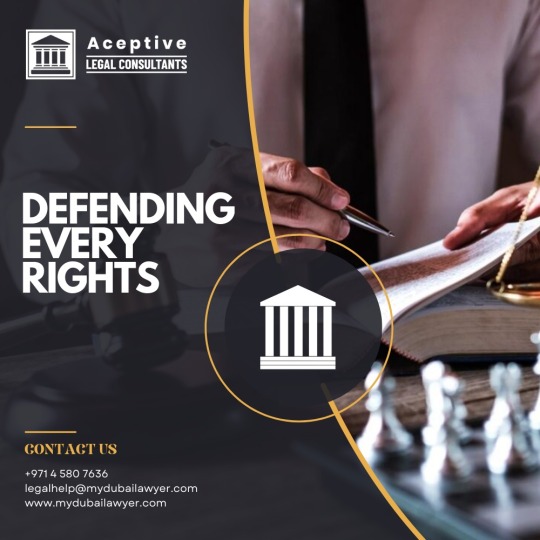
#Best Lawyer in Dubai#Dubai Lawyer#Civil Lawyer Dubai#Trademark Registration in Dubai#Company lawyer Dubai#lawyers in dubai#legal help in dubai#property dispute lawyers dubai
1 note
·
View note
Text
8 notes
·
View notes
Text
Top 25 Most Trusted Lawyers in Delhi India 2023

Advocate Amit Suden is one of India’s foremost senior corporate immigration attorneys with 25+ years of experience as one of India’s senior corporate mobility lawyers, Mr. Amit is recognized as an experienced authority on expatriate mobility matters.
"Top 25 Most Trusted Lawyers in Delhi India 2023"
ADVOCATE AMIT SUDEN FIRM SPECIALISING IN EXCELLENT TAILOR-MADE LEGAL SOLUTIONS
Demand for legal services in India is growing exponentially with large infrastructure projects expected to be launched by the Government to combat the economic slowdown with the increasing number of companies in the nation; many Indian companies engaging in cross-border transactions; increasing levels of legal awareness, regulation & compliance. One law firm that has been able to seize these opportunities and add value to its clientele is New Delhi, headquartered Riar Global LLP.
Founded in 2010, Riar Global carries a legacy of quality and integrity and caters to a wide range of legal requirements of a diverse clientele. The firm continuously helps clients get through the maze of complex legislation in a world where globalisation and technology are constantly changing. It is concentrated on providing clients with counsel that would guarantee the most excellent feasible resolution without compromise.
youtube
#Amit Suden#best corporate lawyer in India#corporate lawyer singapore#corporate lawyers in noida#corporate lawyer#corporate lawyers in kolkata#corporate lawyers in dubai#Best Lawyers in Delhi#senior lawyer#supreme court#high court#lawyer#lawmakers#law firms#lawfirm#cannabis legalization blog#legal action#for legal reasons this is a joke#reuters-legal#legal#law firm#lawyer life#justice#Advocate Amit Suden#advocate
2 notes
·
View notes
Text

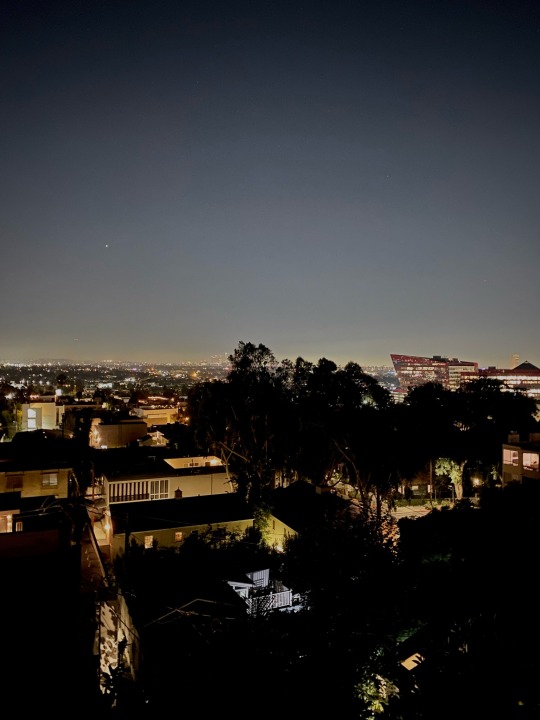
glam glam 🤍
#luxury#lawyers in dubai#los angeles#california#celebrity style#aesthetic#travel#fashion#beverlyhills#inspiration#manifesation#las vegas#high fashion#classy#femme fatale
2 notes
·
View notes
Text

yanfei fanart
3 notes
·
View notes
Text
Get to know about the fees of UK immigration lawyers in Dubai
When it comes to gaining access to a new nation, the role of immigration lawyers is enormous. On a global scale, the United States of America is widely regarded as a progressive nation, which may be one of the reasons why so many people wish to relocate there. An immigration lawyer is regarded as a legally qualified someone who can represent immigrants in matters of naturalization and nationality.
The type of attorney you need
The type of agreement required by UK immigration lawyers in Dubai depends on the type of lawyer, whether you are paying them, and the type of case you are presenting to them. Some immigration circumstances only require a few basic paperwork, while others necessitate appearing before a court. Your lawyer's court appearances are supposed to be more expensive than simple paperwork cases. This is what the term "scope of representation" refers to. The cost charged is largely determined on what the lawyer expects to accomplish in your case.
What will be the fee for UK immigration lawyers?
Some UK immigration lawyers will charge a fee for consultations, while others may do so for free. A retainer is a standard way for a lawyer to get compensated. With retainers, the lawyer is paid up front, and any unpaid fees are returned to the client when the case is completed.
For immigration-related cases, flat rates are another possibility. If the attorney charges a flat fee, you will know exactly how much the case will cost. However, you should inquire about any additional fees, such as photocopying or submission fees. Many UK immigration lawyers in Dubai bill hours based on assignments rather than charging by the hour.
The U.S Immigration Law
The Homeland Security Act was passed by Congress in September 2002, and President Bush signed it into law, transferring the INS's powers to the Department of Homeland Security. The Directorate of Border and Transportation Security now has the INS's enforcement capabilities. The Bureau of Citizenship and Immigration Services now oversees the INS's immigration service duties (BCIS). Both of these agencies are part of the new Homeland Security Department.
If you are travelling from a nation that does not participate in the visa waiver programme, you will need to get a visa before leaving your home country. In general, there should be a US consulate in your nation where you can begin the visa application procedure. Make sure to begin the visa application procedure far ahead of your anticipated travel date.
Officials from the United States are supposed to question you when you arrive at the border, or even before you leave. They can and will ask you to return to your own country if you do not provide sufficient answers to their inquiries.Deportation is the term for this. As a result, it's a good idea to maintain all of your paperwork and double-check that your responses are consistent with your visa type. Prepare to have your belongings searched.
0 notes
Text
Navigating Legal Waters: A Guide to Lawyers in Dubai
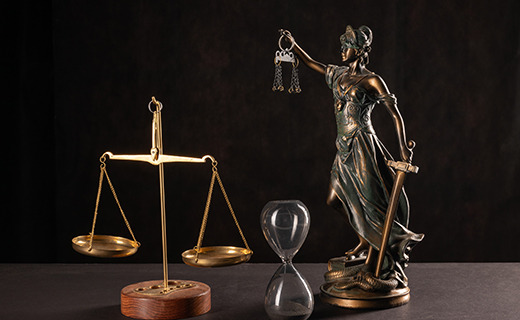
Dubai, with its towering skyscrapers, bustling economy, and vibrant cultural landscape, stands as one of the most dynamic cities in the world. Amidst this fast-paced environment, legal matters often arise, requiring the expertise of skilled professionals to navigate through the intricacies of the legal system. In this blog post, we delve into the role of lawyers in Dubai and the essential services they provide in ensuring justice and legal compliance in the city.
Legal Landscape in Dubai: Dubai’s legal system is a blend of Islamic law, civil law principles, and influences from common law jurisdictions. The legal framework is overseen by the UAE’s federal government, while each emirate, including Dubai, has its own legal system for certain matters. Understanding this complex legal landscape requires the expertise of knowledgeable legal practitioners.
Types of Lawyers in Dubai:
Corporate Lawyers: With Dubai being a global business hub, corporate lawyers play a vital role in advising businesses on various legal matters, including company formation, mergers and acquisitions, contract negotiations, and compliance with local regulations.
Real Estate Lawyers: The real estate sector in Dubai is booming, attracting investors from around the world. Real estate lawyers assist clients in navigating property transactions, lease agreements, construction disputes, and other legal issues related to real estate development.
Family Lawyers: Family law matters such as marriage, divorce, child custody, and inheritance are handled by family lawyers. They provide legal counsel and representation to individuals and families facing sensitive legal issues, ensuring their rights are protected under the law.
Criminal Defense Lawyers: In the event of criminal charges or investigations, individuals require the expertise of criminal defense lawyers to protect their rights and provide a strong defense in court. These lawyers work tirelessly to ensure fair treatment and due process for their clients.
Immigration Lawyers: With a large expatriate population in Dubai, immigration lawyers assist individuals and businesses with visa applications, residency permits, citizenship issues, and immigration appeals, navigating the complexities of immigration laws and procedures.
Qualifications and Licensing: To practice law in Dubai, lawyers must hold a law degree from a recognized institution and be licensed to practice by the relevant authorities. Many lawyers in Dubai have obtained their qualifications from prestigious international universities and have undergone specialized training in UAE law. Additionally, proficiency in Arabic and English languages is often necessary to effectively communicate with clients and navigate the bilingual legal system.
Role of Lawyers in Dubai Society: Lawyers in Dubai serve as advocates for justice, ensuring that individuals and businesses alike receive fair treatment under the law. They play a crucial role in upholding legal rights, resolving disputes, and promoting legal compliance, thus contributing to the overall stability and prosperity of Dubai’s society and economy.
Conclusion: In a city as dynamic and diverse as Dubai, the role of lawyers is indispensable in providing legal services across various practice areas. Whether it’s advising multinational corporations, assisting individuals with personal legal matters, or defending the rights of the accused, lawyers in Dubai play a vital role in upholding the rule of law and ensuring access to justice for all. Their expertise and dedication contribute to Dubai’s reputation as a global center for commerce, innovation, and legal excellence.
1 note
·
View note
Text
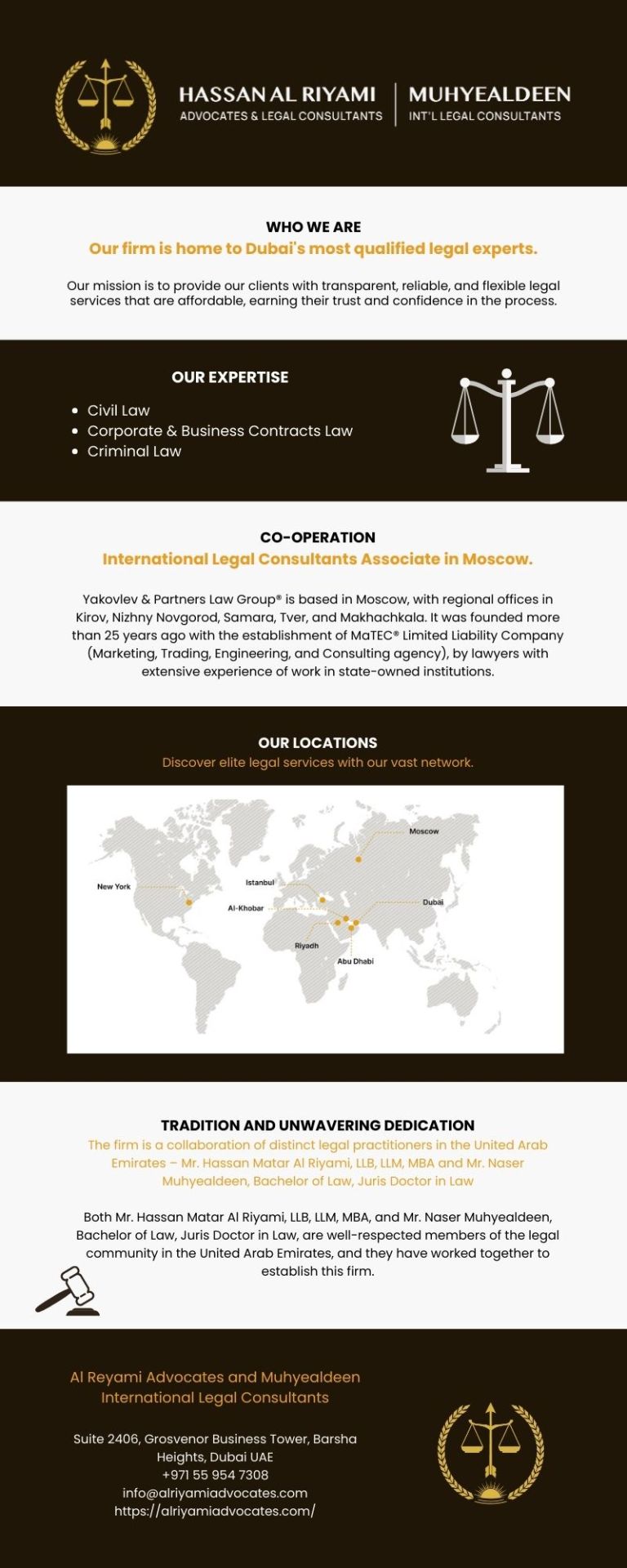
Criminal defense lawyer | Al Reyami Advocates and Muhyealdeen International Legal Consultants
Al Reyami Advocates and Muhyealdeen International Legal Consultants is a top law firm founded since 2001 having over 50 lawyers in Dubai, Abu Dhabi, UAE, Riyadh, Al-Khobar, Istanbul and New York with best International and Local advocates – practicing and specializing in the different field of Legal Profession. Visit: https://alriyamiadvocates.com/
#lawyers in dubai#advocates in dubai#dubai lawyer#dubai advocate#Emirati lawyer#difc lawyer#arbitration lawyer#real estate lawyer#criminal defense lawyer#property lawyer
0 notes
Text
Navigating Legal Waters: Finding the Best Advocates in Dubai
In the vibrant and ever-evolving landscape of Dubai, legal matters can often become complex and daunting. Whether you're facing a personal legal issue, managing a business dispute, or seeking counsel for corporate matters, having a skilled lawyer by your side is essential. In Dubai, where the legal system merges elements of civil law and Islamic law, finding the right advocate can make all the difference in achieving a favorable outcome.
Understanding Legal Needs in Dubai
Dubai, known for its bustling economy and multicultural population, hosts a diverse array of legal challenges. From corporate law and real estate transactions to family disputes and criminal defense, the legal landscape here demands expertise across various domains.
One of the first steps in finding the best advocate in Dubai is understanding your specific legal needs. Are you a business owner navigating commercial contracts? Or perhaps you're an expatriate seeking guidance on immigration law. Identifying the nature and scope of your legal issue will help you narrow down your search for the most suitable legal representation.
Qualities of a Top-tier Dubai Lawyer
When seeking legal assistance in Dubai, certain qualities set the best advocates apart:
Expertise: Look for lawyers with extensive experience and a proven track record in handling cases similar to yours. Whether it's litigation, arbitration, or transactional matters, specialized knowledge is invaluable.
Reputation: Reputation speaks volumes in the legal industry. Seek recommendations from trusted sources, review client testimonials, and assess the lawyer's standing within the legal community.
Communication Skills: Effective communication is crucial for a successful attorney-client relationship. Your lawyer should be able to explain complex legal concepts in plain language and keep you informed at every stage of the process.
Cultural Sensitivity: Given Dubai's diverse population, cultural sensitivity is essential. A skilled advocate understands the cultural nuances that may impact legal proceedings and approaches each case with respect and empathy.
Accessibility: Accessibility is key when dealing with legal matters. Choose a lawyer who is responsive to your inquiries and readily available to address your concerns.
The Role of Advocates in Dubai
In Dubai, lawyers, often referred to as advocates, play a multifaceted role in the legal system:
Legal Representation: Advocates represent clients in various legal proceedings, including court hearings, negotiations, and alternative dispute resolution methods such as mediation and arbitration.
Legal Advice: Beyond representation, advocates provide legal advice and guidance to individuals, businesses, and organizations navigating complex legal issues.
Document Drafting: From contracts and agreements to legal opinions and pleadings, advocates assist clients in drafting and reviewing a wide range of legal documents.
Dispute Resolution: Whether it's resolving business disputes or settling family matters, advocates employ their negotiation skills and legal expertise to facilitate favorable outcomes for their clients.
Finding the Best Advocates in Dubai
So, how do you find the best advocate to handle your legal matters in Dubai?
Research: Start by conducting thorough research online, exploring law firm websites, legal directories, and professional profiles. Pay attention to areas of specialization and relevant experience.
Consultations: Schedule consultations with multiple advocates to discuss your case and assess compatibility. Use this opportunity to ask questions, clarify fees and expectations, and gauge the advocate's approach to your legal issue.
References: Seek recommendations from colleagues, friends, and trusted advisors who have experience dealing with legal matters in Dubai. Personal referrals can provide valuable insights into the quality of legal representation.
Credentials: Verify the credentials and qualifications of potential advocates, ensuring they are licensed to practice law in Dubai and are in good standing with the relevant legal authorities.
Gut Feeling: Ultimately, trust your instincts when selecting an advocate. Choose someone with whom you feel comfortable and confident entrusting your legal affairs.
In conclusion, navigating the legal landscape in Dubai requires the guidance of skilled advocates who understand the intricacies of the local legal system. By prioritizing expertise, reputation, communication, and cultural sensitivity, you can find the best advocate to champion your legal rights and interests in Dubai's dynamic environment.
For more details visit our website: Dubai Lawyer
Contact: +9715854 44775
Mail id: [email protected]
Website: https://aldhaheriinternational.com/
Address: 404, 4th Floor,Business Avenue, P. O. Box No:115263,Sheikh Rashid Road,Dubai,UAE
0 notes
Text

0 notes